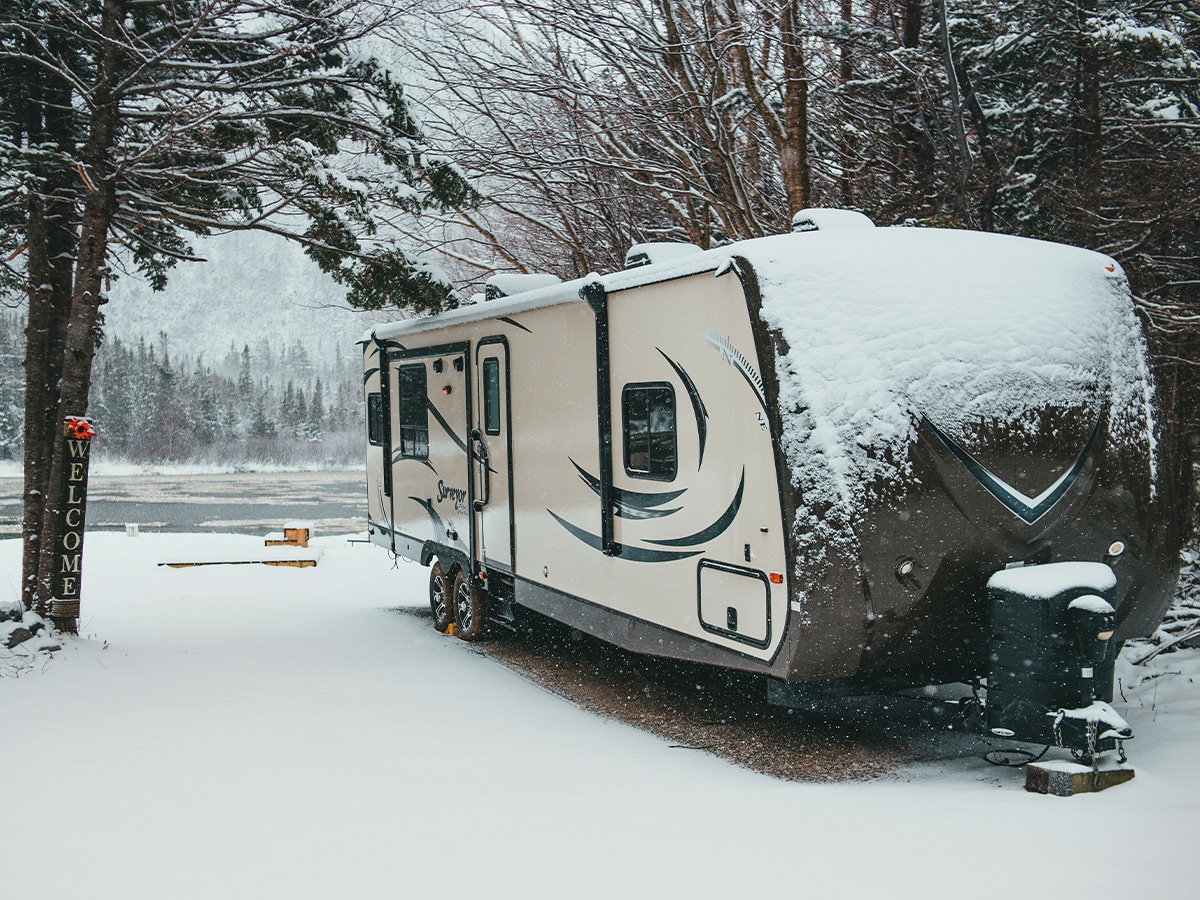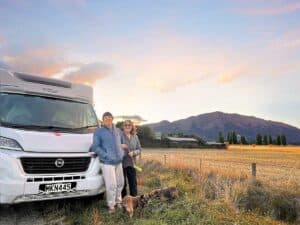With winter officially here this month, Lisa Jansen shares her tips and sources some essential gear to make winter RV trips fun and comfortable.
For some, camping is often considered a summer activity. However, with the right home on wheels, gear and equipment, travelling in winter can be heaps of fun. In fact, there are many advantages to winter trips. Campgrounds and freedom camping spots are less busy, roads are quieter, and many campgrounds and some attractions offer discounted winter rates.
However, winter also brings its challenges. It’s cold and often wetter, the days are shorter, fewer sunshine hours make it harder for solar panels to keep up, snow and ice can make driving trickier, and some places are closed or inaccessible. Luckily, most of these challenges can be easily overcome with the proper preparation and gear. If you’re planning to hit the road this winter, here are our top tips for making RVing in winter a trip to remember for all the right reasons.
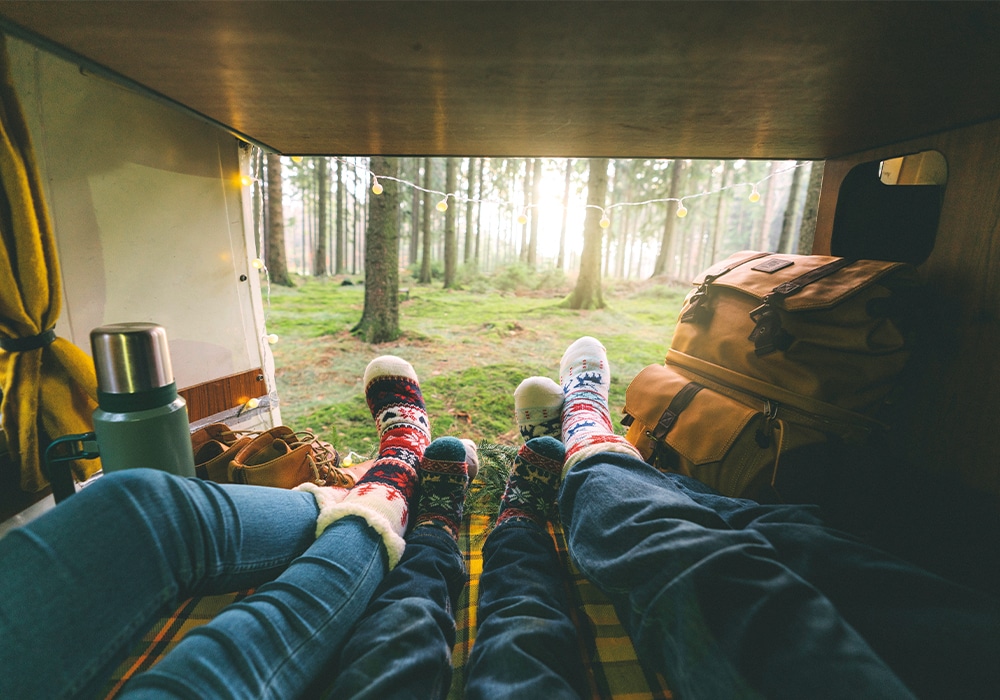
Heating, heating, heating!
When you ask seasoned winter RVers what their must-have winter essentials are, heating is the answer you will hear the most. Even if you only travel in the so-called ‘winterless north’, having a heater on board will make winter trips much more enjoyable. Gas and diesel heaters are the most common off-grid options. Diesel heaters tend to produce drier heat, which is an advantage in small spaces that often suffer from humidity, especially in winter.
However, if you have a caravan or a motorhome that runs on petrol, getting a gas heater might be easier and cheaper since you likely already have a gas connection for cooking. Whichever you choose, make sure you also install a carbon monoxide alarm to keep safe. If you stay at campgrounds with a power connection most of the time, a small portable fan heater should do the trick, or even an oil heater – though with the latter, it will take longer for your RV to warm up.
Some RVers, especially those with large motorhomes and buses, swear by their fireplace to keep warm. Their argument is that, even though a fireplace and the required wood take up more space, it wins in terms of atmosphere and cosiness. Regardless of which option you go with, make sure you have a reliable way to heat your home on wheels during those frosty nights and mornings.
Keep your feet warm
In many RVs, especially older ones, the floor is the weak spot when it comes to keeping warm. Heat rises, so even with a heater, the floor can be cold, often resulting in cold feet. Therefore, it’s not surprising that many travellers list rugs and slippers on their lists of winter essentials. A warm rug not only makes the RV look cosy, it also helps to keep the floor and your feet warm. However, sometimes a carpet is not an option, or not enough. In that case, a good pair of slippers or Ugg boots will be your best friend in winter.
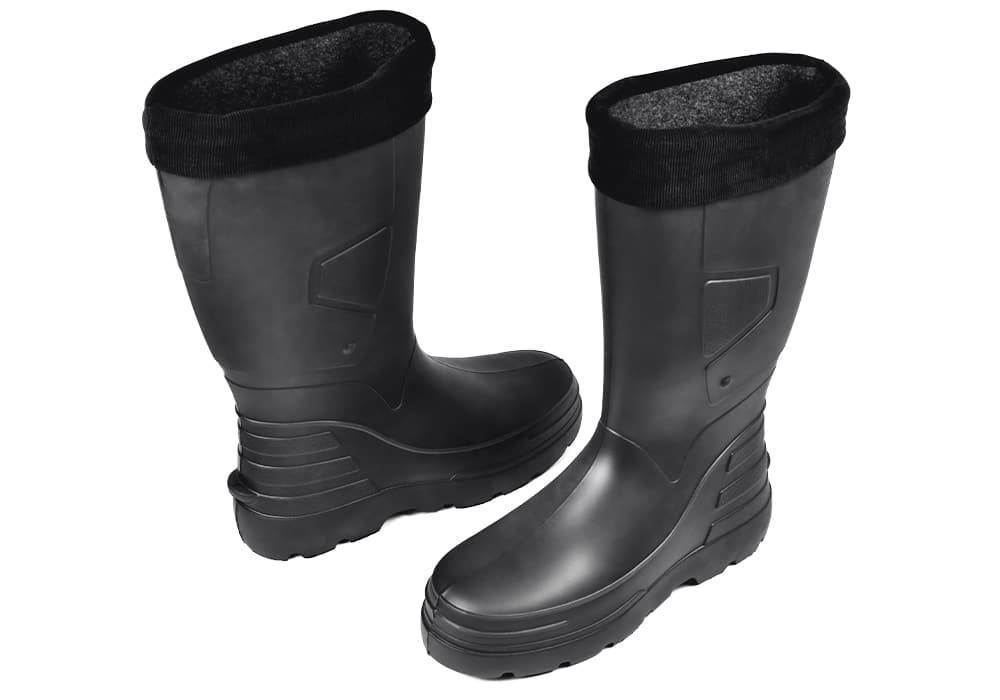
Pack your wet weather gear
While most parts of New Zealand see some rain year around, the chances of experiencing wet days and muddy grounds are much higher in winter (though the North Island’s past summer is certainly giving some winters a run for their money). In addition, drying clothes is trickier due to not having the option of hanging them out in the sun as much. As a result, wet weather gear is an absolute must-have when travelling in winter. As the old saying goes, “There is no such thing as bad weather, only bad gear”. A quality raincoat is the minimum every traveller needs. Many RVers also list gumboots as a winter essential, as it makes navigating wet and muddy ground much easier. If you just like being outside no matter the weather, you might also want to invest in a pair of waterproof pants or a high-quality, windproof umbrella such as the popular Blunt umbrella.
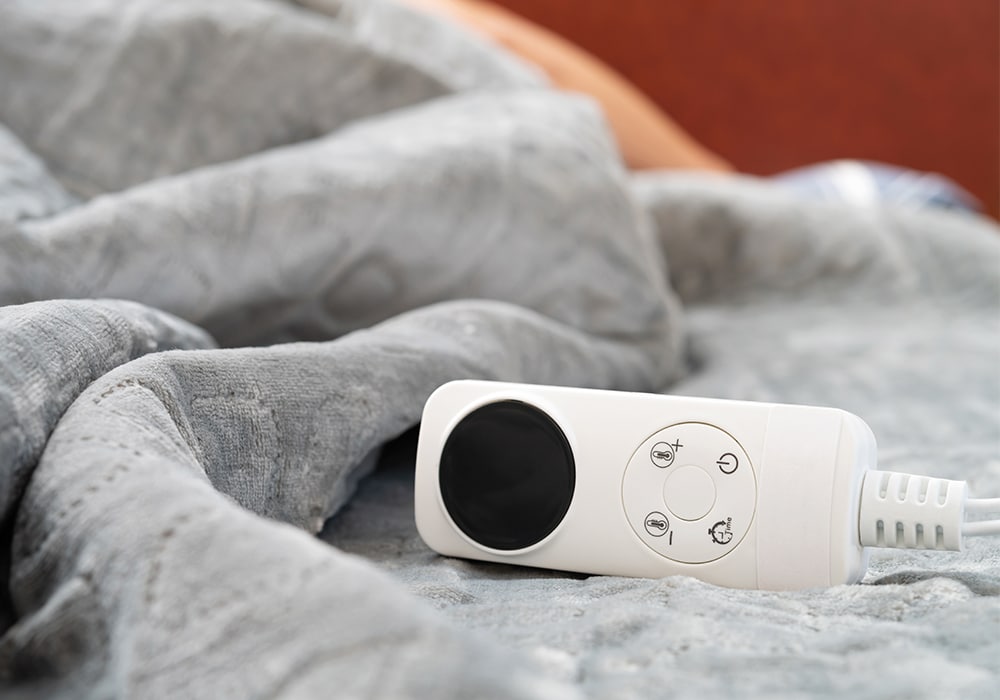
Electric blankets for the win
It probably goes without saying that a warm duvet and extra blankets are must-haves in winter. But sometimes, that’s not enough. That is why many seasoned winter travellers swear by electric blankets to keep warm. And the best part is, you can get 12v electric blankets at very reasonable prices that don’t use much power (around 50 watts per hour), so you don’t even need an inverter. If you are worried about draining your battery, consider a separate power bank that you can charge during the day and then use to warm your blanket at night.
Indoor entertainment
Not surprisingly, most people who travel year-round report spending much more time inside in winter than in summer. As such, it’s a good idea to bring some extra indoor entertainment options. For some, that’s books, board games, an arts and crafts box, and lots of activties if you’re travelling with kids. Whatever keeps you and your family entertained during cold winter days and evenings, bring plenty of it. For others, that’s about being online and ensuring they have a stable connection through a mobile wireless data plan, reliable internet and the latest smart technology to watch movies and shows. Just bear in mind that if you’re heading off-grid, you may need to upgrade your type of service, and ensure you have some power banks to keep devices charged up.
For the hardcore crowd
Most motorhomers are drawn to regions with less extreme winters, such as Northland, Bay of Plenty, Marlborough or Nelson/Tasman. However, for others, it’s not a true New Zealand winter trip unless it involves some ice and snow. If that’s you, there is some extra preparation you need to do. For starters, you might want to invest in extra insulating covers for your windows. Snow chains are also an essential item for hardcore winter travels.
Another concern when travelling in severe sub-zero temperatures is your pipes freezing up. Therefore, depending on how exposed your pipes are, consider adding pipe insulation tape or foam or a skirt around your RV.
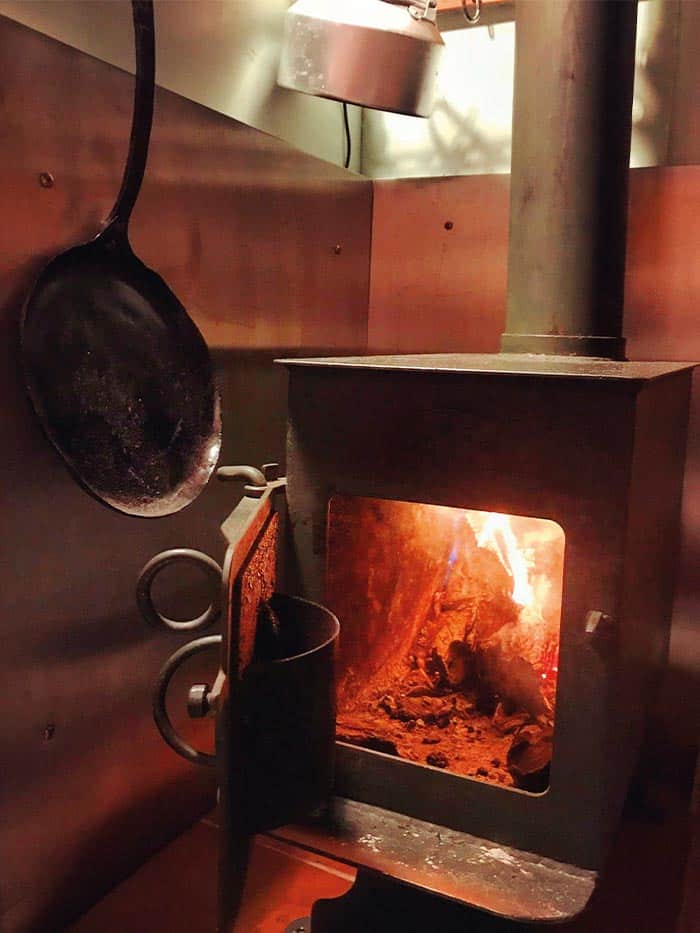
More winter tips:
Winter RV trips take some extra preparation and additional gear. However, if you follow these tips, there is absolutely no reason why you can’t have an amazing time exploring New Zealand in the colder season.
• Oodies. Don’t know what an oodie is? It is basically what you would expect to get if a hoodie and a bathrobe had a baby. In other words, the perfect outfit for winter evenings in the camper.
• Wear a beanie or hoodie at night to keep your head warm – which will help keep your whole body warm.
Stay connected: get a reliable aerial or antenna to get the strongest mobile or satellite uplinks available.
• Hot water bottles are a must-have.
• Get a thermos for hot water to make tea and coffee throughout the day without having to heat fresh water each time.
• If your RV tends to get very humid in winter, it might be worth running a dehumidifier every now and then.
• A generator can help keep the batteries charged during winter when the solar panels aren’t producing as much.

